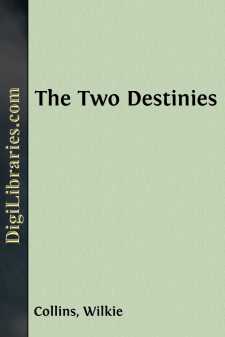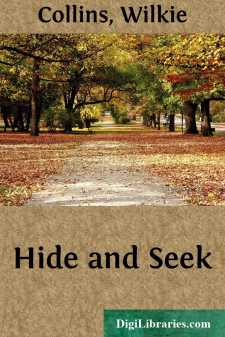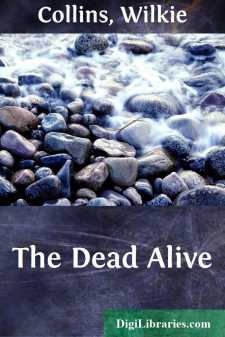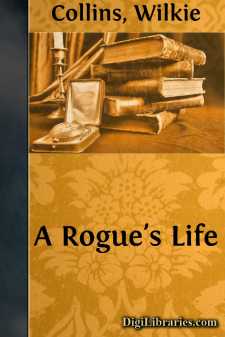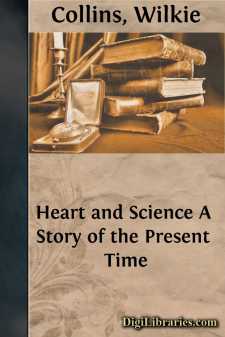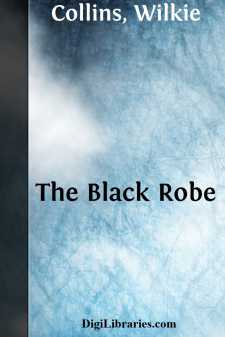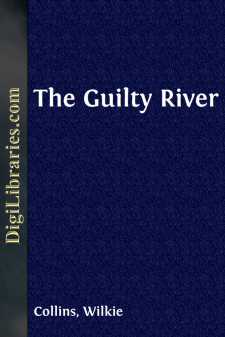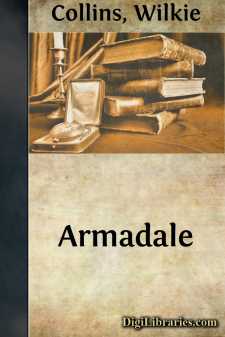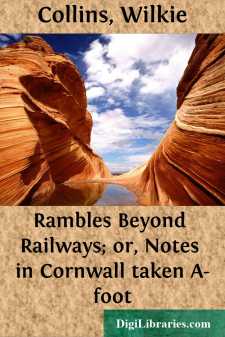Categories
- Antiques & Collectibles 13
- Architecture 36
- Art 48
- Bibles 22
- Biography & Autobiography 813
- Body, Mind & Spirit 142
- Business & Economics 28
- Children's Books 17
- Children's Fiction 14
- Computers 4
- Cooking 94
- Crafts & Hobbies 4
- Drama 346
- Education 46
- Family & Relationships 57
- Fiction 11829
- Games 19
- Gardening 17
- Health & Fitness 34
- History 1377
- House & Home 1
- Humor 147
- Juvenile Fiction 1873
- Juvenile Nonfiction 202
- Language Arts & Disciplines 88
- Law 16
- Literary Collections 686
- Literary Criticism 179
- Mathematics 13
- Medical 41
- Music 40
- Nature 179
- Non-Classifiable 1768
- Performing Arts 7
- Periodicals 1453
- Philosophy 64
- Photography 2
- Poetry 896
- Political Science 203
- Psychology 42
- Reference 154
- Religion 513
- Science 126
- Self-Help 84
- Social Science 81
- Sports & Recreation 34
- Study Aids 3
- Technology & Engineering 59
- Transportation 23
- Travel 463
- True Crime 29
The Two Destinies
by: Wilkie Collins
Categories:
Description:
Excerpt
CHAPTER I. GREENWATER BROAD
LOOK back, my memory, through the dim labyrinth of the past, through the mingling joys and sorrows of twenty years. Rise again, my boyhood's days, by the winding green shores of the little lake. Come to me once more, my child-love, in the innocent beauty of your first ten years of life. Let us live again, my angel, as we lived in our first paradise, before sin and sorrow lifted their flaming swords and drove us out into the world.
The month was March. The last wild fowl of the season were floating on the waters of the lake which, in our Suffolk tongue, we called Greenwater Broad.
Wind where it might, the grassy banks and the overhanging trees tinged the lake with the soft green reflections from which it took its name. In a creek at the south end, the boats were kept—my own pretty sailing boat having a tiny natural harbor all to itself. In a creek at the north end stood the great trap (called a "decoy"), used for snaring the wild fowl which flocked every winter, by thousands and thousands, to Greenwater Broad.
My little Mary and I went out together, hand in hand, to see the last birds of the season lured into the decoy.
The outer part of the strange bird-trap rose from the waters of the lake in a series of circular arches, formed of elastic branches bent to the needed shape, and covered with folds of fine network, making the roof. Little by little diminishing in size, the arches and their net-work followed the secret windings of the creek inland to its end. Built back round the arches, on their landward side, ran a wooden paling, high enough to hide a man kneeling behind it from the view of the birds on the lake. At certain intervals a hole was broken in the paling just large enough to allow of the passage through it of a dog of the terrier or the spaniel breed. And there began and ended the simple yet sufficient mechanism of the decoy.
In those days I was thirteen, and Mary was ten years old. Walking on our way to the lake we had Mary's father with us for guide and companion. The good man served as bailiff on my father's estate. He was, besides, a skilled master in the art of decoying ducks. The dog that helped him (we used no tame ducks as decoys in Suffolk) was a little black terrier; a skilled master also, in his way; a creature who possessed, in equal proportions, the enviable advantages of perfect good-humor and perfect common sense.
The dog followed the bailiff, and we followed the dog.
Arrived at the paling which surrounded the decoy, the dog sat down to wait until he was wanted. The bailiff and the children crouched behind the paling, and peeped through the outermost dog-hole, which commanded a full view of the lake. It was a day without wind; not a ripple stirred the surface of the water; the soft gray clouds filled all the sky, and hid the sun from view.
We peeped through the hole in the paling. There were the wild ducks—collected within easy reach of the decoy—placidly dressing their feathers on the placid surface of the lake.
The bailiff looked at the dog, and made a sign....


